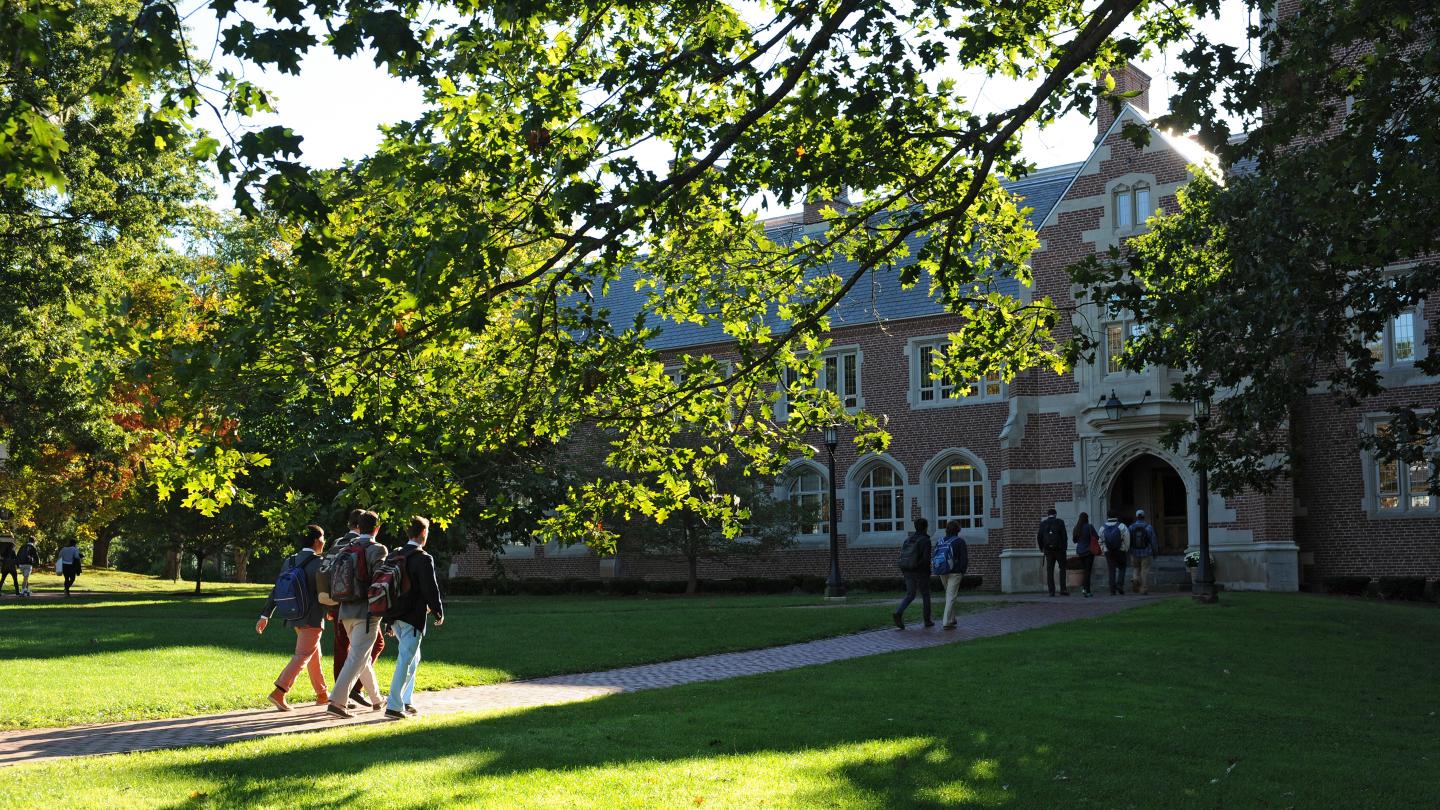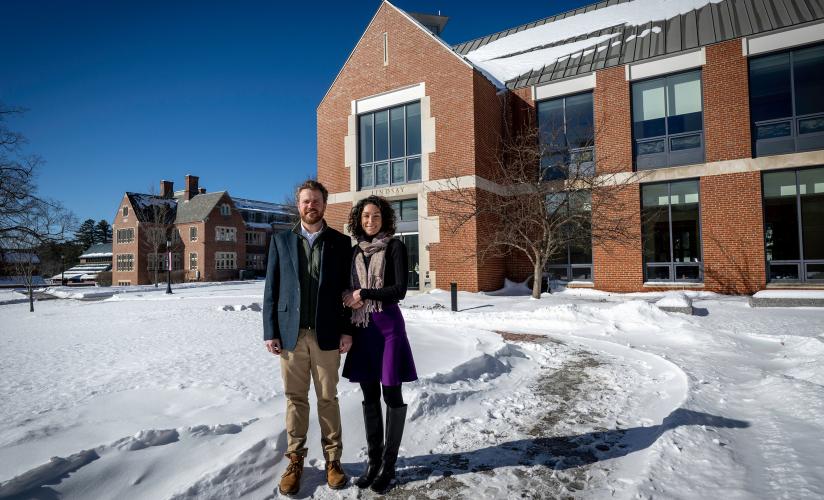

Recommendations provide a multi-year, multi-pronged strategy to expand ongoing work
As the first year of its engagement with St. Paul’s School concluded this summer, RAINN (the Rape, Abuse & Incest National Network), the nation’s largest anti-sexual violence organization, issued its assessment and recommendations regarding the School’s sexual misconduct prevention and response programming.
The report provides a comprehensive analysis of the current structures in place intended to strengthen prevention and response to sexual misconduct at the School as well as school culture and student safety. The report also provides a set of practical and actionable recommendations for SPS to implement over the next three years.
“We are grateful for the thorough and thoughtful work done by RAINN’s team of experts to date,” SPS Rector Kathy Giles said. “We fully embrace their recommendations as well as their ongoing guidance as we continue to strengthen and expand our efforts to ensure the health and well-being of our community members. A poignant message within this report is the need for continued focus on our school culture and its ongoing evolution. It’s not enough to implement smart reforms and update policies and procedures. Our work also includes efforts to reassure students, families and employees that there is a receptive, sympathetic and understanding team in place within a structured and safe environment. We appreciate RAINN’s recognition of our work and progress, and we are grateful to the individuals who are teaching us so much as we continue to strengthen school culture and student experience.”
Upon receipt of the RAINN report, the School shared it with the Office of the New Hampshire Attorney General and with Donald Sullivan, the independent compliance overseer assigned by the Attorney General to monitor the School’s reporting of incidents related to student safety and well-being. Any School policy changes resulting from the report’s recommendations will be done in partnership with Sullivan and reviewed by the Attorney General, as per the 2018 Settlement Agreement. The implementation plan co-designed by RAINN and SPS will ensure continued collaboration between the School, local law enforcement, and all external partners providing support and guidance throughout this effort.
Key Observations
RAINN noted in its report, “St. Paul’s leadership has made a number of process improvements in recent years that impact or intersect with the School’s sexual misconduct prevention and response programming,” and cited the following changes at the School:
- Increased supervision and monitoring of students’ whereabouts on campus.
- Development of a residential life curriculum — LinC — that continues to evolve and expand.
- Enhanced reporting mechanisms.
- Universal training of faculty on healthy boundaries.
- Improved response process for reports of sexual misconduct.
- Routinized external reporting of reports of sexual misconduct, when required by law or agreement with the Concord Police Department (CPD).
- Increased frequency of investigations of reports of sexual misconduct.
- Increased use of independent external investigators for reports of sexual misconduct.
- Increased transparency with the public and the St. Paul’s community about St. Paul’s sexual misconduct prevention and response (ICO reports; trainings; seminars with students).
- New investments in technology for case management and improved documentation of reports of sexual misconduct.
The report also noted some of the challenges facing the School, including its historical failures to protect victims and survivors of sexual misconduct and the impact that continues to have on building trust around the work today, particularly on campus when, as RAINN notes: “Much of sexual misconduct response programming can and should happen under strict confidentiality measures in order to maintain victim privacy. This makes it difficult to be transparent with the community about the School’s response to an individual incident.”
Recommendations
RAINN’s recommendations for St. Paul’s School are derived from its data and information collection and the organization’s long history of anti-sexual violence work around the country. As noted in the report, “These recommendations are also guided by best and promising practices related to sexual misconduct prevention and response, informed by leading research, and situated within the context of existing state and federal law.”
RAINN also notes, “Success will not result in zero reports of sexual misconduct. Zero incidents of sexual misconduct are not an achievable goal, and a lack of reports does not indicate a safer environment. Nor will success result in community-wide agreement or positive feedback; instead, the goal is to ensure a system in which concerns can be received and incorporated into improvements moving forward.”
The recommendations are structured around RAINN’s six principles of victim-centered programming: strong leadership, shared values and knowledge, transparency, external resources, ongoing assessment, and effective communication. Under each principle, the organization has listed actionable items, which St. Paul’s School has built into a three-year strategic implementation plan. Specific recommendations include:
- Formalize roles and responsibilities within the Sexual Misconduct Response Team, which includes the creation of a designated administrative sexual misconduct program coordinator and a victim support coordinator, roles that the School has recently established and filled.
- Bolster guidance on appropriate employee-student relationships and boundaries on campus.
- Enhance and expand employee training programs.
- Examine every level of operations for victim-centered programming.
- Expand on victim and disciplinary response processes in handbooks.
- Develop a policy on disclosure of information after employee separations, related to allegations of sexual misconduct.
- Formalize a Sexual Assault Resource Team to serve SPS students.
- Partner with the Concord Police Department to update and strengthen the Memorandum of Understanding between the department and SPS.
- Conduct an annual internal review of sexual misconduct policies and protocols.
- Develop a plan for seeking regular community input.
Next Steps
RAINN provided Key Responder Training in September for a cohort of staff and faculty involved in direct response to reports of sexual misconduct at the School. The organization also will conduct a two-day site visit in September to further review implementation of its recommendations with faculty and staff and to participate in a case review and internal data analysis — an assessment protocol conducted periodically to identify potential areas for ongoing improvement. Moving forward, SPS will seek to engage RAINN as needed during the School’s ongoing work to implement, evaluate, and evolve its approach to student safety and well-being.
St. Paul’s School is also grateful to continue and expand its partnership with the Crisis Center of Central New Hampshire (CCCNH), a regional organization that serves victims and survivors of abuse, sexual assault, and domestic violence in Merrimack County. During a meeting in late August, SPS faculty had the opportunity to meet the CCCNH counselor who will be on site two days a week in the Clark House Health Center for the 2022-23 academic year. She will serve as an independent, confidential source of support and advocacy for students and employees, in addition to the School’s support services and reporting mechanisms. She also will be available to the SPS community via phone when she is not on campus. The School recognizes and appreciates CCCNH as an expert resource and partner in its work around student and employee safety and well-being.
“CCCNH and its parent organization, the NH Coalition Against Domestic and Sexual Violence, provide critical services in our local community, and we are very grateful to both organizations for their ongoing engagement with St. Paul’s School,” Giles explains. “Our community will benefit greatly from this partnership.”
To read the independent compliance overseer reports released by the Office of the New Hampshire Attorney General, go to sps.edu/about/governance. The School will share its progress and outcomes regarding RAINN’s recommendations with community members as milestones are completed.
RAINN’s Approach
In its report introduction, RAINN defined the core principles that guide its work with St. Paul’s School, which include “a commitment to victim-centered, trauma-informed, and fair and equitable sexual misconduct prevention and response strategies. … The mission, size, context, history, and members of each community are just some of the factors that dictate an institution’s needs when it comes to sexual misconduct policies, procedures, and culture. Accordingly, RAINN has not measured St. Paul’s against a singular ideal. Rather, RAINN has endeavored to understand the School’s unique operation context, identify its strengths and challenges, and then offer recommendations that are both practical and aspirational to help the School continue to move forward.”
During its yearlong audit and assessment, RAINN reviewed “thousands of pages of documents and hours of training videos relevant to St. Paul’s implementation of its sexual misconduct prevention and response strategies across the community and campus,” as noted in the report. The organization also engaged directly with SPS community members via anonymous and voluntary climate assessment surveys and interviews. Participants included current faculty, staff and students at the School and its summer program, the Advanced Studies Program (ASP), as well as former employees and SPS and ASP alumni.



